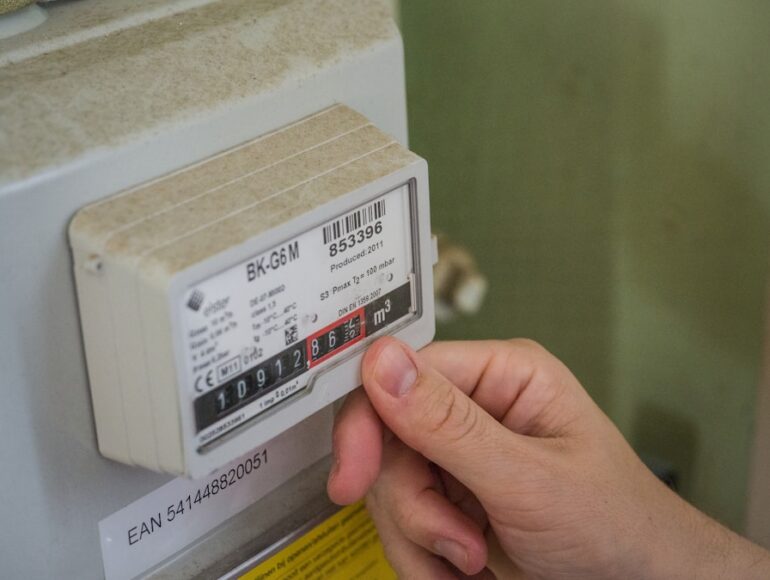The UK government has been actively promoting the use of renewable energy sources and energy efficiency measures through various schemes and initiatives. These government energy schemes aim to reduce carbon emissions, lower energy bills, and promote sustainable energy practices. The government has introduced several schemes to incentivize homeowners, businesses, and energy providers to adopt renewable energy technologies and improve energy efficiency. These schemes include the Green Homes Grant Scheme, the Renewable Heat Incentive, the Energy Company Obligation, the Smart Export Guarantee, and the Feed-in Tariff Scheme. Each of these schemes has its own specific objectives and targets, but they all contribute to the overall goal of transitioning to a low-carbon and sustainable energy future.
The Green Homes Grant Scheme
The Green Homes Grant Scheme was launched in September 2020 with the aim of improving the energy efficiency of homes in the UK. The scheme provides vouchers to homeowners to cover up to two-thirds of the cost of eligible energy efficiency and low-carbon heating improvements, up to a maximum of £5,000 per household. For low-income households, the scheme covers 100% of the cost, up to a maximum of £10,000. The eligible improvements include insulation, double glazing, low-carbon heating systems such as air source heat pumps and solar thermal panels, and energy-efficient doors. The scheme is part of the government’s plan to “build back greener” after the COVID-19 pandemic and create green jobs in the energy efficiency and renewable energy sectors. The Green Homes Grant Scheme is expected to help homeowners save on their energy bills, reduce carbon emissions, and create demand for green technologies and services.
The Green Homes Grant Scheme has faced some challenges since its launch, including administrative issues and delays in voucher processing. However, the government has committed to addressing these issues and ensuring that the scheme delivers its intended benefits. The scheme is set to run until March 2022, and it is hoped that it will help kickstart a green economic recovery and drive investment in energy efficiency and renewable energy technologies. The scheme has the potential to make a significant impact on reducing carbon emissions from homes and buildings, which account for a large portion of the UK’s overall emissions. By incentivizing homeowners to make energy efficiency improvements and adopt low-carbon heating systems, the Green Homes Grant Scheme can contribute to the UK’s climate targets and help create a more sustainable built environment.
The Renewable Heat Incentive
The Renewable Heat Incentive (RHI) is a government scheme that provides financial incentives to encourage the uptake of renewable heat technologies among homeowners, businesses, and public sector organizations. The RHI supports the installation of renewable heat technologies such as biomass boilers, heat pumps, and solar thermal systems by providing quarterly payments over a period of seven years for households and 20 years for non-domestic installations. The scheme aims to reduce carbon emissions from heating systems, promote the use of sustainable heat sources, and support the growth of the renewable heat industry. The RHI has been instrumental in driving the deployment of renewable heat technologies in the UK, with over 80,000 installations accredited under the scheme since its launch in 2011.
The RHI has played a crucial role in incentivizing the adoption of renewable heat technologies in both domestic and non-domestic settings. It has helped to make renewable heat technologies more affordable and accessible for consumers, leading to a significant increase in their uptake. The scheme has also contributed to job creation and economic growth in the renewable heat industry, as well as reducing carbon emissions from heating systems. However, the RHI is set to close to new applicants in March 2021, with no replacement scheme announced as of yet. This has raised concerns about the future of support for renewable heat technologies in the UK and the potential impact on the industry. It is crucial for the government to introduce a new scheme or alternative support mechanism to continue driving the uptake of renewable heat technologies and ensure that the UK remains on track to meet its climate targets.
The Energy Company Obligation
The Energy Company Obligation (ECO) is a government energy efficiency scheme that requires larger energy suppliers to deliver energy efficiency measures to domestic properties in Great Britain. The scheme aims to reduce carbon emissions from homes, tackle fuel poverty, and improve energy efficiency by providing funding for insulation, heating upgrades, and other energy-saving measures. ECO is funded by a levy on energy suppliers, which is used to finance the installation of energy efficiency measures in eligible households. The scheme targets low-income and vulnerable households, as well as those living in hard-to-treat properties, with a focus on improving the energy performance of homes that are most in need.
The ECO has been successful in delivering energy efficiency measures to thousands of households across the UK, helping to reduce energy bills and improve living conditions for vulnerable residents. The scheme has also contributed to job creation and skills development in the energy efficiency sector, as well as supporting the growth of small and medium-sized enterprises (SMEs) involved in delivering energy efficiency measures. However, there have been concerns about the effectiveness and reach of the ECO, with some critics arguing that it does not go far enough in addressing fuel poverty and improving energy efficiency in homes. There is a need for ongoing evaluation and improvement of the ECO to ensure that it continues to deliver meaningful benefits for households and contributes to the UK’s climate goals.
The Smart Export Guarantee
The Smart Export Guarantee (SEG) is a government scheme that requires large electricity suppliers to offer a payment for small-scale low-carbon electricity generation exported to the grid by households and businesses. The SEG replaced the Feed-in Tariff (FIT) scheme in January 2020, providing a new way for small-scale generators to receive payment for their exported electricity. Under the SEG, generators with solar panels, wind turbines, hydroelectric systems, or other renewable technologies can receive payments for each kilowatt-hour (kWh) of electricity they export to the grid. The payments are set by suppliers based on their export tariffs, providing an additional source of income for small-scale generators and incentivizing investment in renewable energy technologies.
The SEG has been welcomed as a positive step towards supporting small-scale renewable energy generation and encouraging more households and businesses to invest in low-carbon technologies. By providing a financial incentive for exporting renewable electricity to the grid, the SEG can help drive investment in solar panels, wind turbines, and other small-scale renewables, contributing to decarbonizing the electricity system. However, there have been concerns about the level of payments offered under the SEG and whether they are sufficient to incentivize investment in renewable energy technologies. There is also a need for greater awareness and promotion of the SEG among potential generators to ensure that they can take advantage of the scheme’s benefits. As the UK continues its transition towards a low-carbon electricity system, it will be important for the government to monitor and review the effectiveness of the SEG in supporting small-scale renewable generation.
The Feed-in Tariff Scheme
The Feed-in Tariff (FIT) scheme was a government initiative that provided financial incentives for small-scale renewable electricity generation by households, businesses, and communities. Under the FIT scheme, generators received payments for each unit of electricity they generated from renewable sources such as solar panels, wind turbines, hydroelectric systems, or biomass installations. The payments were made for both the electricity generated for self-consumption and any surplus electricity exported to the grid. The FIT scheme played a significant role in driving investment in small-scale renewables across the UK, with over 800,000 installations accredited under the scheme since its launch in 2010.
The FIT scheme was instrumental in promoting small-scale renewable electricity generation and supporting the growth of solar panels and other renewables in homes and businesses. It provided a reliable source of income for generators and helped make renewable energy technologies more affordable and accessible for consumers. However, the FIT scheme closed to new applicants in March 2019, with existing generators able to continue receiving payments for 20 years from their accreditation date. The closure of the FIT scheme raised concerns about the future support for small-scale renewables in the UK and whether alternative mechanisms would be put in place to continue driving investment in these technologies. It will be important for the government to consider new ways of incentivizing small-scale renewable generation and ensuring that it remains an attractive option for households and businesses looking to reduce their carbon footprint.
Conclusion and Future Outlook for Government Energy Schemes in the UK
In conclusion, government energy schemes play a crucial role in promoting renewable energy adoption and improving energy efficiency across homes and businesses in the UK. The Green Homes Grant Scheme aims to improve energy efficiency through vouchers covering up to two-thirds of eligible improvements costs. The Renewable Heat Incentive provides financial incentives for renewable heat technologies such as biomass boilers and heat pumps. The Energy Company Obligation requires larger energy suppliers to deliver energy efficiency measures to domestic properties while targeting low-income households. The Smart Export Guarantee offers payments for small-scale low-carbon electricity generation exported to the grid by households and businesses while replacing the Feed-in Tariff Scheme which provided financial incentives for small-scale renewable electricity generation.
Looking ahead, it will be important for the government to continue supporting these initiatives while also considering new ways of incentivizing renewable energy adoption and improving energy efficiency. This includes addressing any challenges or limitations faced by existing schemes such as administrative issues or delays in voucher processing under the Green Homes Grant Scheme or concerns about payment levels under the Smart Export Guarantee. It will also be crucial for the government to introduce new schemes or alternative support mechanisms where existing schemes are set to close or expire such as with the Renewable Heat Incentive or Feed-in Tariff Scheme. By continuing to invest in renewable energy technologies and energy efficiency measures through government schemes, the UK can make significant progress towards its climate targets while also creating green jobs and driving economic growth in these sectors.


